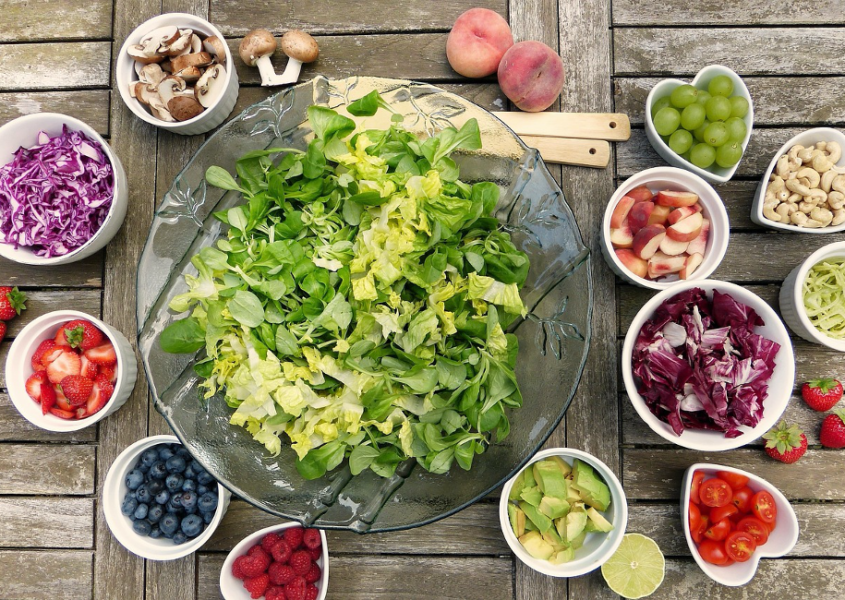How to Find the Perfect Meal Plan for Your Weight Loss Journey
Are you tired of trying countless weight loss plans that promise quick results but leave you feeling unsatisfied and hungry? Look no further! This comprehensive guide will provide you with all the tools and knowledge you need to create a meal plan that not only supports your weight loss goals but also keeps you satisfied and energized throughout the day.
Benefits of Following a Structured Meal Plan
Following a structured meal plan can offer numerous benefits when it comes to weight loss. One of the key advantages is that it helps you stay on track by providing a clear roadmap of what to eat and when. This eliminates guesswork and impulsive food choices, making it easier to resist temptation and stick to your goals.
Another benefit of a structured meal plan is that it can help you make healthier food choices. When you have meals prepared in advance, you have the opportunity to include a variety of nutritious foods that are rich in vitamins, minerals, and essential macronutrients. This ensures that your body receives all the necessary nutrients it needs to function optimally and support your healthy weight journey. By incorporating a wide range of fruits, vegetables, lean proteins, and whole grains into your meal plan, you can nourish your body and promote overall health.
Understanding the Basics of Nutrition for Weight Loss
Before diving into creating a weight loss meal plan, it’s important to understand the basics of nutrition. When it comes to weight loss, the key is to create a calorie deficit, which means consuming fewer calories than your body needs to maintain its current weight. However, it’s crucial to prioritize the quality of the calories you consume rather than simply focusing on the quantity.
Protein is an essential macronutrient that plays a crucial role in weight loss. Not only does it help build and repair muscles, but it also increases satiety, helping you feel fuller for longer. Including lean sources of protein such as chicken, fish, tofu, or legumes in your meals can help support your weight loss goals.
Fiber is another important component of a weight loss meal plan. It aids in digestion, helps control blood sugar levels, and promotes feelings of fullness. Whole grains, fruits, vegetables, and legumes are excellent sources of fiber that can be incorporated into your meals to support weight loss.
Healthy fats are also an essential part of a balanced meal plan. While fats are more calorie-dense than protein and carbohydrates, they provide important nutrients and help keep you satisfied. Incorporating sources of healthy fats such as avocados, nuts, seeds, and olive oil into your meals can help balance your macronutrient intake.
Creating a Personalized Meal Plan
Now that you understand the basics of nutrition, it’s time to create a personalized weight loss meal plan that suits your unique needs and preferences. The first step is to determine your daily caloric needs based on your age, gender, weight, activity level, and weight loss goals. Online calculators or consulting with a registered dietitian can help you determine the appropriate calorie intake to achieve a healthy and sustainable weight loss.
Once you have your daily caloric target, you can start planning your meals. Begin by dividing your daily calories into three main meals (breakfast, lunch, and dinner) and allocating a portion of calories for snacks. Aim to include a balance of macronutrients in each meal, focusing on lean proteins, whole grains, fruits, vegetables, and healthy fats.
When creating your meal plan, it’s important to consider portion sizes and the overall balance of your meals. Be mindful of portion control and choose nutrient-dense foods that are low in calories but high in essential nutrients. It’s also crucial to listen to your body’s hunger and fullness cues when creating your meal plan. Don’t force yourself to eat when you’re not hungry, and stop eating when you feel comfortably satisfied. Remember, the goal is to nourish your body and provide it with the energy it needs, not to restrict or deprive yourself.
Tips for Staying Motivated
Staying motivated and sticking to your meal plan can be challenging, but with the right strategies and mindset, you can overcome obstacles and achieve your weight loss goals. Here are some tips to help you stay on track:
- Set realistic and achievable goals: Break down your weight loss journey into smaller, attainable goals. Celebrate your achievements along the way to stay motivated and focused.
- Find a support system: Surround yourself with people who support your goals and can provide encouragement and accountability. This can be friends, family, or online communities.
- Plan for challenges: Anticipate potential challenges that may arise and develop strategies to overcome them. For example, if you know you’ll be attending a social event with tempting food, plan ahead by eating a healthy meal beforehand or bringing a nutritious dish to share.
- Practice mindful eating: Pay attention to your body’s hunger and fullness cues. Eat slowly and savor each bite, focusing on the taste and texture of your food. Another tip is to avoid eating while distracted, for example, watching the television while you eat.
- Keep a food journal: Track your meals and snacks in a food journal. This can help identify your nutrient intake and ensure you are getting enough calories in a day.
- Try utilizing a meal service: No matter your age or lifestyle, it can be hard to prioritize 3 healthy meals and snacks per day. This is where using a meal service like Chefs for Seniors can come in handy. You can communicate with your personal chef about your goals, foods you wish to avoid, and portion sizes to help you in your weight loss journey.
Common Mistakes to Avoid
While creating a weight loss meal plan can be beneficial, it’s important to avoid common mistakes that can hinder your progress. Here are some mistakes to watch out for:
- Restrictive diets: Avoid extreme or overly restrictive diets that eliminate entire food groups or severely limit caloric intake. These types of diets are not sustainable in the long term and can lead to nutrient deficiencies and disordered eating patterns.
- Relying solely on pre-packaged meals or shakes: While pre-packaged meals or shakes may seem convenient, they often lack the variety and nutrients found in whole foods. Pre-packaged meals can often contain preservatives and excess amounts of sodium, which can hinder your results if you’re looking to eat a healthier diet.
- Neglecting portion control: Even with a healthy meal plan, consuming excessive portions can hinder weight loss progress. Be mindful of portion sizes and use measuring tools to accurately portion your meals.
- Overcomplicating meal preparation: While it’s great to experiment with new recipes and flavors, don’t feel pressured to create elaborate meals every day. Simple, nutritious meals can be just as effective for weight loss. Focus on balance, variety, and portion control rather than complicated recipes.
- Ignoring your body’s hunger and fullness cues: It’s important to listen to your body and eat when you’re hungry, stopping when you’re comfortably satisfied. Ignoring hunger or eating past the point of fullness can lead to overeating and hinder weight loss progress.
- Not seeking professional guidance: If you have specific health concerns or dietary restrictions, it’s important to consult with a registered dietitian or healthcare professional. They can provide personalized guidance and ensure your meal plan meets your unique needs.



